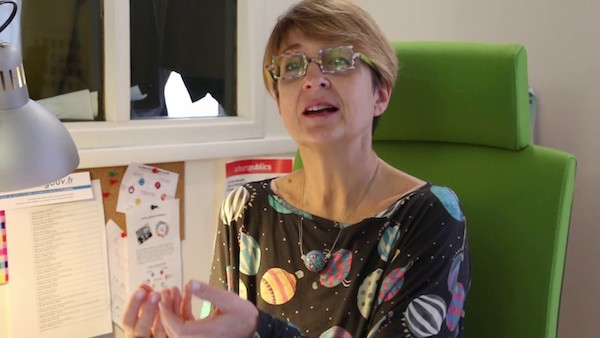Interview with Michèle Pasteur, Director of theAgence Nouvelle des Solidarités Actives (ANSA) on the occasion of the second workshop of the Inclusion and Digital Lab that she organized on October 3, 2017. In this interview, she comes back on the role of ANSA towards the actors of digital inclusion, and on the major challenges of the digital society.
Can you introduce us to ANSA?The Agence Nouvelle des Solidarités Actives is an association under the French law of 1901 whose social purpose is the fight against poverty and for inclusion. We intend to contribute to an inclusive society. In a society that is becoming more and more digital, the question of digital inclusion arises. The issue shared by the Inclusion and Digital Lab is to ensure that our society allows everyone to use all the services, to be comfortable with digital technology, and to ensure that the fact that people increasingly need digital technology does not create an additional divide for people who are already excluded. On the contrary, digital technology must help improve their citizenship.
Which actors did you invite to the Inclusion and Digital Lab? What complementary view could they bring?Society is becoming more and more compartmentalized. Companies, public services and associations all work separately. On a subject of society, such as the increasingly present digital society, all actors must be involved.
The first actors are the citizens themselves. In our Lab, we want to involve the people directly concerned. They are the starting point of our reflection.
Then, each person in his or her daily life has to deal with a company, a public service, an association or a school. All of these actors provide or create solutions. Our ambition is to bring together all these players to identify their inclusion solutions, to meet expectations and enable everyone to appropriate digital services. So we want to facilitate dialogue between companies like Sopra Steria (present at the Lab) and social operators, local authorities, training institutions, etc., and bring them together over the long term.
What are your goals for social inclusion?Digital inclusion has been a topic for 10 years. We care about it and we care about it. So it is no longer a question of engaging the digital inclusion dimension but of getting the actors involved to meet and get to know each other. ANSA wants to ensure that those who produce and use these services are able to hold a common discourse with the authorities and companies. And this discourse, in my opinion, is to say that by trying to give everyone access to the digital society, we will be serving the whole of society because we will be developing easy to use services that everyone will be able to use. We must not forget the most vulnerable people; by working towards them, we will ultimately be working for everyone.
In your opinion, what are the major challenges facing our society?There is a lack of objective data to quantify these challenges. But today there are two movements: operators who develop top-down solutions, which people must appropriate; and another movement, more diffuse and very territorialized, where support solutions for certain types of people are developed. Startups are also part of this movement.
The challenge is to succeed in giving visibility to the really promising solutions and to create coherence. We need to consolidate them to have applications and sites that are easy to use. And what we want to avoid at all costs is that the same solution is duplicated 10 times because it does not succeed in going beyond the local scale.
How do you position yourselves in relation to the players cited many times today among the solutions used: BlaBlaCar, LeBonCoin, LinkedIn, Google,... ?We can't compete with Google. They have the best engineers to develop the best services. But these companies develop services with a commercial purpose. Even if they don't charge for them, they market personal data for advertising purposes. I think that there can be a cohabitation between these big companies and alternative solutions where we know that our data will not be used in this way. Giving each citizen the choice to use one or the other service with full knowledge of the facts is what is important.
Society is better off when there are alternatives; they are necessary. Today there is a question mark around net neutrality. But Google will never give access to administrative services.
I think there is a need for communities to engage more with digital economy companies. Communities have tried to develop their own carpooling services, route planners, etc., but it didn't work because the platforms had a better offer. The dialogue with startups that want to develop services that make sense (there are plenty of them) could help develop services of general interest and create alternatives.





